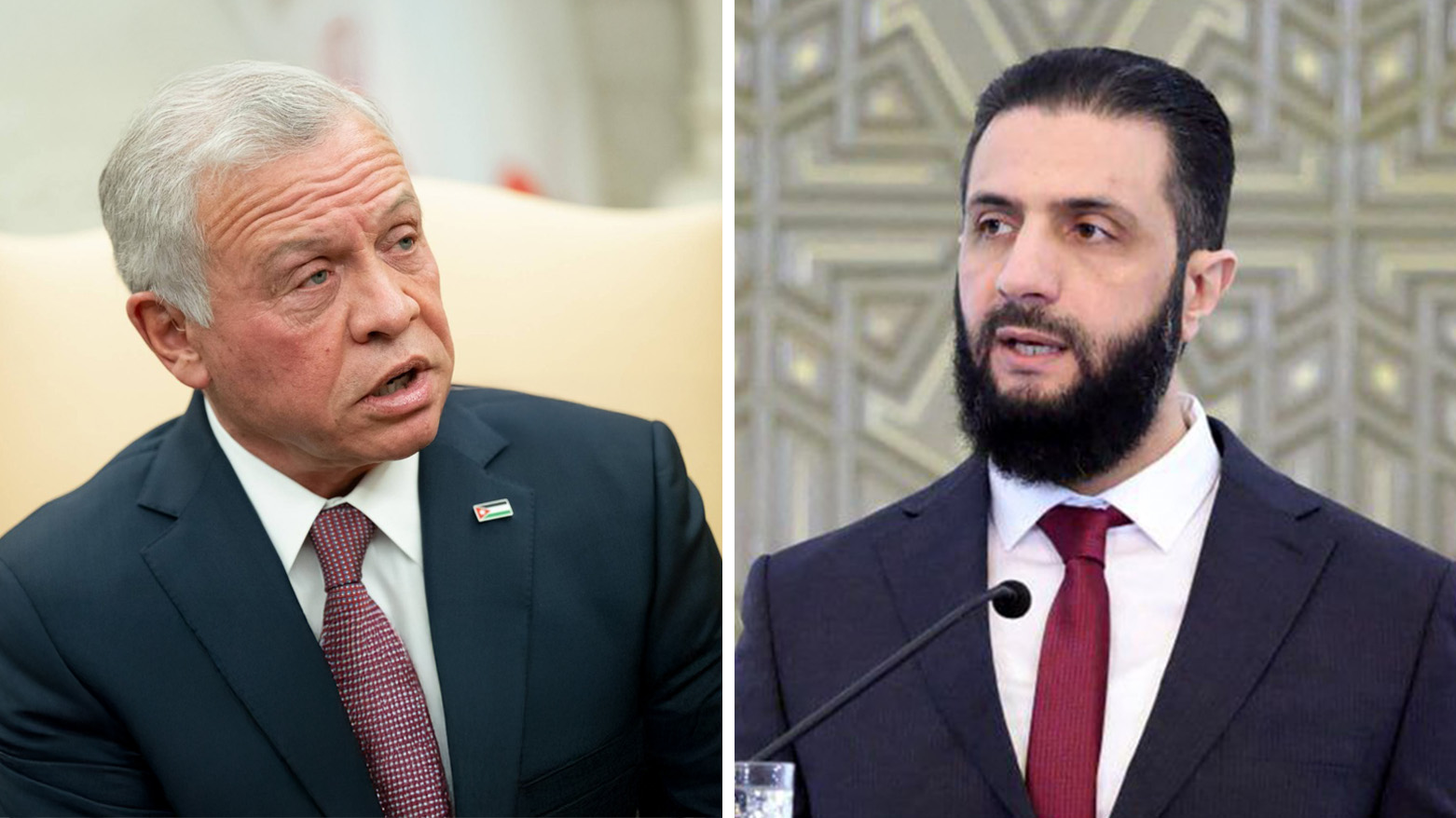Syrian Transitional President Meets King Abdullah II in Jordan Ahead of Arab Summit
Al-Sharaa's visit to Jordan and meeting with King Abdullah II come amid concerns over inclusivity. The recent Syrian National Dialogue Conference in Damascus excluded Kurds, raising doubts about the new government's commitment to inclusivity.

ERBIL (Kurdistan24) – Syrian Transitional President Ahmed al-Sharaa is set to arrive in Amman on Wednesday, for a crucial meeting with Jordan’s King Abdullah II. The discussions, focusing on border security, economic cooperation, water resources, and the refugee crisis, come at a time of heightened regional instability and shifting alliances in the Middle East.
Strengthening Jordan-Syria Relations in a Post-Assad Era
Jordanian diplomatic sources revealed that this visit marks al-Sharaa’s third international trip since assuming office, following previous visits to Saudi Arabia and Turkey.
His diplomatic engagements highlight a strategic push to rebuild Syria’s regional ties and seek stronger alliances in the Arab world.
The meeting between al-Sharaa and King Abdullah II is particularly significant, taking place just a week before the urgent Arab summit in Cairo. Syrian officials confirmed that Egyptian President Abdel Fattah el-Sisi formally invited al-Sharaa to attend the summit, marking Syria’s increasing reintegration into Arab diplomatic circles after years of political isolation.
The visit also follows the conclusion of the Syrian National Dialogue Conference in Damascus, where al-Sharaa emphasized Syria’s territorial integrity, the necessity of consolidating arms under state control, and the formation of a transitional justice commission to address past violations.
Noticeably, Kurds were the major absentees in this national conference in Damascus.
Observers note that gaining Jordan’s support could bolster Syria’s new administration, which requires Arab backing to establish long-term stability.
Regional and Security Implications Amid Broader Political Changes
Political observers believe the visit underscores Jordan’s role as one of the key players in regional security and stability. Observers noted that " al-Sharaa’s visit to Amman and his meeting with King Abdullah II is crucial, especially given the ongoing tensions in the region, including Israel’s war on Gaza and recent attacks on parts of Syria."
Additionally, Syria and Jordan share a 375-kilometer border, making security cooperation a critical aspect of their relationship. `
In recent years, Jordan has faced increasing challenges, including infiltration attempts, weapons smuggling, and drug trafficking, much of which has been linked to elements operating under the previous Syrian regime.
King Abdullah II is expected to press al-Sharaa on concrete steps to address these cross-border security concerns.
Kurds Excluded from Syria’s Political Process
Despite calls for inclusivity, Syria’s new political transition has faced criticism for excluding Kurdish representation.
The Kurdish National Council in Syria (KNCS) and the Autonomous Administration of North and East Syria (AANES) have both condemned the recent Syrian National Dialogue Conference, warning that marginalizing Kurdish voices undermines the prospects for a stable and democratic Syria.
KNCS spokesperson Faisal Yusuf told Kurdistan24 that limiting political dialogue to one faction is a "negative indicator" for Syria’s future, emphasizing that Kurds must be represented in the political process through legitimate channels.
Read More: KNCS Warns: Excluding Kurds from Syria’s Political Process Threatens Future Stability
"The Kurdish struggle for rights will persist, and we are working toward a unified political vision to ensure fair representation in Syria’s transition," Yusuf stated.
Meanwhile, AANES has rejected the legitimacy of the conference, arguing that any national reconciliation effort must be inclusive and reflect the aspirations of all Syrian people.
International and Regional Support for Syria’s Transition
Since Assad’s removal, Damascus has become a focal point for international diplomacy, with Arab and Western delegations showing support for the new leadership and encouraging a broad-based political transition.
However, the absence of key political actors, including the Kurds, raises questions about whether the dialogue can truly lead to a unified and inclusive Syria.
With the formation of the transitional government imminent, the coming weeks will be crucial in determining whether Syria’s new leadership can foster genuine national reconciliation or if political exclusion will deepen divisions in the war-torn country.
The outcome of the upcoming Arab summit in Cairo will likely play a significant role in shaping Syria’s diplomatic standing and its path toward stability.